Donnacha Ryan has had a rare and wonderful career. The teenage hurler from the rural town of Nenagh in county Tipperary only turned to rugby to fatten up during the winter.
“I was a bit skinny,” said the 6’7, 115kg athlete years later.
By the time Michael Cheika saw Ryan tearing up trees for Shannon RFC, and tried unsuccessfully to bring him to Leinster, the word was out. When Paul O’Connell went down injured for a season Ryan filled the void, for both province and country, as well as anyone could. Despite two years of chronic foot problems he constructed a test match innings, just shy of the half century, that finished with victory over England in 2017. Ryan’s time in Munster red also concluded after that season’s Pro14 final.
His best years were ahead – but while there was decent money on the table for the 33-year-old to stay put, the veteran lock took the road most players only dream about.
Racing 92 looms large in this long winded explanation of why Ryan remains an outlier.
Nobody leaves Ireland’s provinces anymore. Not until they are done with you.
Nobody leaves Ireland’s provinces anymore. Not until they are done with you.
Scene: Three men and a baby discuss the future of Irish rugby.
Venue: French Rugby HQ, Marcoussis.
Date: August 5th 2014
Backdrop: Women’s World Cup game when Fiona Coghlan’s Ireland toppled the seemingly unbeatable Black Ferns.
Actually, it was three men, infant Luca and his mother Laura Sexton.
The three men were Ireland head coach Joe Schmidt, IRFU contract negotiator David Nucifora and Racing’s marquee outhalf Johnny Sexton who at the time was one season into a two-year-deal, with the option of hanging around for a third campaign.
Long before the final whistle we witnessed their happy gathering. I write this with certainty as the press box was two rows behind them.
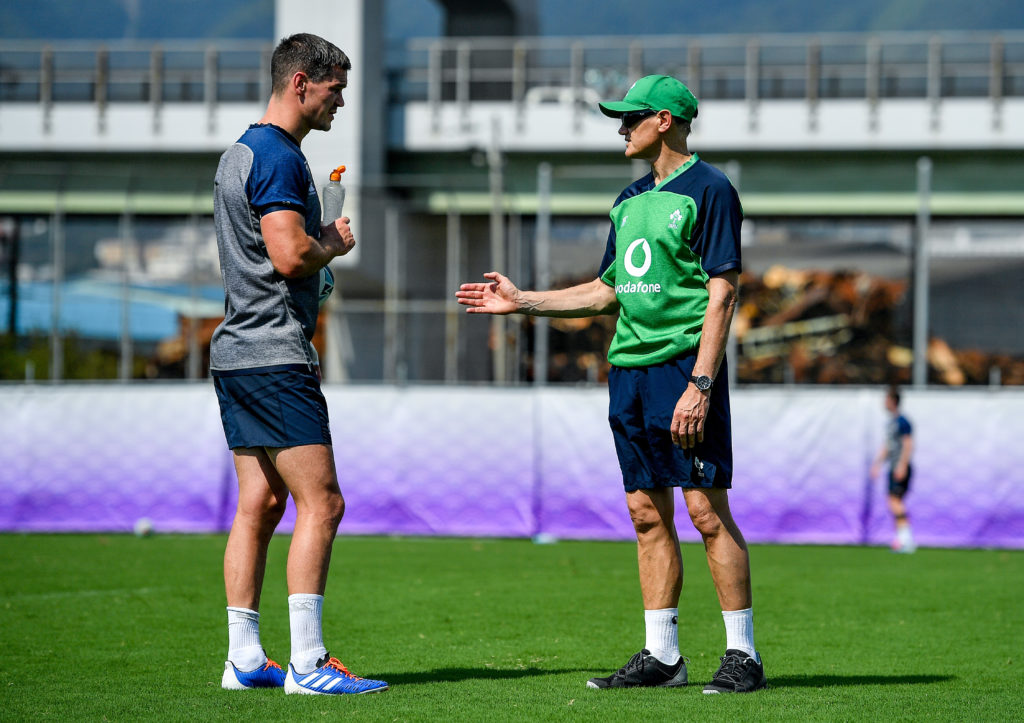
This was the moment Sexton agreed to abandon a club career in France and return to Leinster. The ripple effect is still visible. With another season to run on his Racing contract, agreed with real estate magnate Jacky Lorenzetti, you can imagine how Les Cuel et Blanc stakeholders felt about their world-class signing making such a public statement of intent.
Break-ups are never easy. Especially when you get back with your Ex but do not move out of the flat for another eight months. Awkwardly, Sexton had to return to a changing room now fully aware he was not with them for the long haul. Lorenzetti barely missed a beat before snapping up Dan Carter.
“As far as I know that was the meeting that got Johnny back from Racing,” said Ireland women’s head coach Philip ‘Goose’ Doyle. “They were killing two birds with one stone.”
More than that, the Kiwi and Aussie (Schmidt and Nucifora) at the top of the Irish rugby pyramid were about to block all the wild geese who seek a smooth return home every winter to play international rugby.
Break-ups are never easy. Especially when you get back with your Ex but do not move out of the flat for another eight months. Awkwardly, Sexton had to return to a changing room now fully aware he was not with them for the long haul.
How Sexton was allowed to leave Dublin in the first place is a mess entirely of the IRFU’s doing. But they mopped it up by creating Nucifora’s role as High Performance Director – a brief he had previously filled in Australia.
Anyway, Sexton re-negotiated his return to Dublin without an agent but this was the age of sweeteners to keep Irish teams on the coat-tails of countries that invest in their national sports on a grander scale. Denis O’Brien, the billionaire who also helped pay the salaries of successive Republic of Ireland football managers Giovanni Trapattoni and Martin O’Neill (plus O’Neill’s assistant, Roy Keane), bolstered Sexton’s already lucrative four-year-deal.
A typically Irish solution to an Irish problem had been found, with private investors topping up player wages to make them comparable to what could be earned in France or England.
The Irish Times (September 16th 2014):
‘The first deal of this kind was brokered last January by Jamie Heaslip’s agent, Damien O’Donohoe of Ikon. This was allowed to avoid the loss of another marquee Irish player following Sexton signing for Racing Metro 92.
‘Heaslip was able to spurn the advances of Toulon while maintaining his status as the highest-paid player in Irish rugby when Leinster chief executive Mick Dawson arranged for him to become a Bank of Ireland brand ambassador.
‘This saw Heaslip sell his image rights to secure a contract believed to be worth close to €600,000, presuming the number eight plays a certain number of games each season and achieves other targets, aligned to team success.
‘Approximately 10 percent of Heaslip’s salary is funded by Leinster’s main sponsor.’
In the same article, Philip Browne, CEO of Irish rugby, noted: “Some of the provinces have been quite successful at generating private money. For instance Leinster have been successful in getting their training facilities in UCD funded by private money. I think at Munster and Ulster there’s private money involved in terms of the supporters clubs, which are being used to fund the academy developments, certainly in Munster. I think we are looking all the time at seeing how we can renew our business model, how can we not stand still basically. We have to keep moving forwards.”
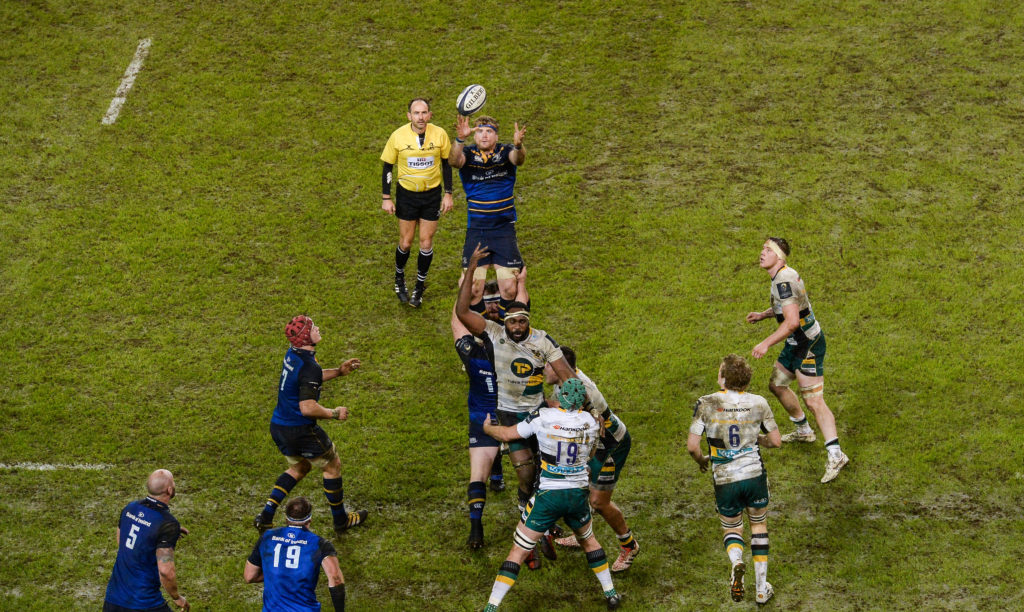
For anyone who is wondering, there’s no salary cap hanging over the Irish provinces but they run a very tight financial ship under the gaze of honorary treasurer Tom Grace – a former Ireland and Lions winger whose financial career as a partner in global accounting firm PricewaterhouseCoopers, ensures his word on expenditure is Gospel.
Taking a leaf out of the All Blacks manual, Sexton was the last player Nucifora was prepared to allow Schmidt to select for Ireland while living off shore. Previously, men like Tommy Bowe and Geordan Murphy had won a sackful of caps plying their trade at Ospreys and Leicester.
No more.
Sexton also created a cautionary tale for the next man seeking to leave the provinces: ‘Look what happened to Johnny.’
Schmidt is on record stating that the IRFU’s inability to manage their generational/franchise player on a daily basis tore chunks out of Sexton’s career. Paris, and the numerous head bangs that forced a 12-week hiatus from all rugby until February 2015, made him less durable in the long-term, according to Schmidt.
Sexton also created a cautionary tale for the next man seeking to leave the provinces: ‘Look what happened to Johnny.’
“There is no policy [on the non-selection of players who move abroad],” said Schmidt in 2017 before explaining that very policy. “There is only an intention from the IRFU to best protect the provinces and the local game. We believe that the best way to do that is to select from within Ireland.
“There’s one player [Sexton] who went to Racing and he was picked for the first 12 games in the season, and I’m not sure he’s ever had the same resilience since then.
“I think it’s pretty self evident: Johnny hasn’t played 12 games in a row since then and that’s because you pick up the wear and tear and it’s hard then to get that back. We’re looking to add to the longevity of our players.”
Sexton strongly contests this narrative and while his physicality in recent times has been hugely impressive, not a season passes without at least one enforced lay off.
Schmidt’s media messaging was clear: stay home for less money and enjoy a longer career.
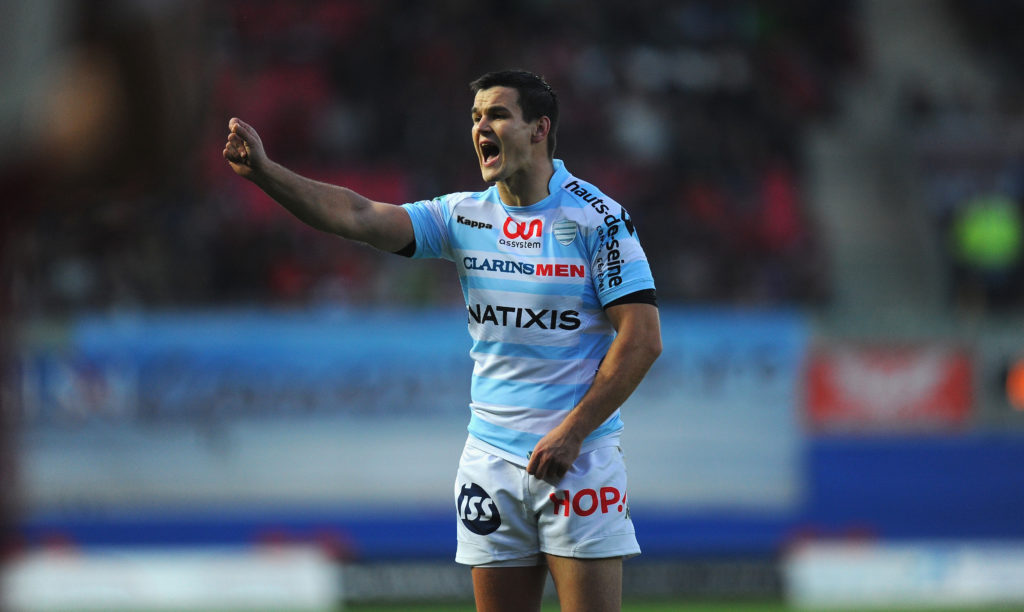
Any high achieving group of people needs a convincing reason not to pursue a route that guarantees them a better salary. They need one of their own to be yanked out and punished before fully understanding the consequences of such actions.
Simon Zebo is that martyr.
There’s a scene in The Sopranos when Tony feels the need to reassert his authority. After taking a long look around his crew, lounging in the pork store backroom, the Mafia boss hands his strongest and youngest soldier a bloody beating.
Zebo became Perry Annunziata in this tale by wrongly assuming his rare skill set would, at the very least, keep him in the Ireland training squad eight months before switching from Munster to Racing.
But Zebo’s surprise exclusion for November 2017 was the precise moment that Nucifora drew a thin green line in the sand.
Zebo became Perry Annunziata in this tale by wrongly assuming his rare skill set would, at the very least, keep him in the Ireland squad eight months before switching from Munster to Racing
This remains the strategy to dissuade others from walking into the free market (Rob Kearney joins the Western Force in 2021 but, like Sean O’Brien’s switch to London Irish, there was no real offer for these thirty-something’s to remain at Leinster).
What we know now is Schmidt drove down to Cork to plead with Zebo not to sign for the French club. Maverick talent cannot be hemmed in. Still only 27, he was dead set on moving to the city where his parents met (as a teenager Arthur Zebo left the Caribbean island of Martinique for Paris and was only denied a run in the 800 metres at the 1976 Montreal Olympics by a broken leg sustained during parachute training).
“Simon was a guy that we wanted to keep investing in, that he was really important to us,” Schmidt stated in 2019, after the World Cup meltdown.
Zebo might have a different perspective on the terms of this investment but the message for players was unambiguous: The moment you decide to leave you are out.
“If you make that choice to go overseas we are going to keep investing in people here,” Schmidt explained. “You got to back yourself to bring those people through.”
Schmidt turned to Jacob Stockdale, a bigger, younger left wing from Ulster. Stockdale reeled off eight tries for Ireland in 2018 – but struggled at full-back last Saturday in Paris, the city Zebo now lives in.
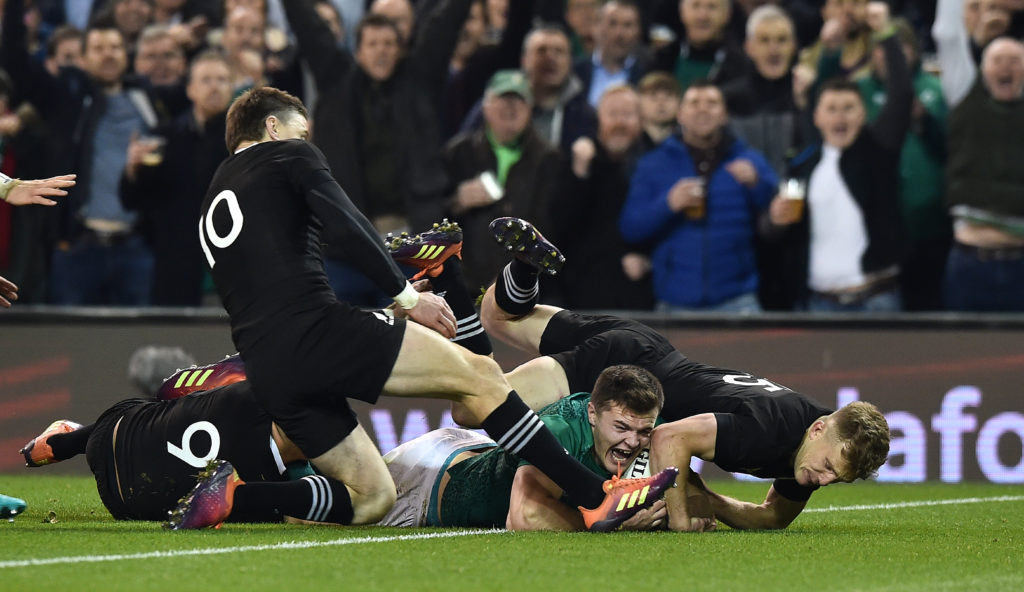
Zebo must have been inconsolable watching his country’s greatest ever calendar year deliver a Grand Slam and series victory in Australia before the All Blacks were tamed by Stockdale’s iconic finish in November. Oddest of all, Munster coach Johann van Graan dropped him for the Champions Cup semi-final against – you guessed it – Racing 92. Teddy Thomas ensured that the decision to start Alex Wootton on the wing backfired spectacularly.
Zebo kept smiling, clearly enjoying his new lifestyle and warmed by Donnacha Ryan’s Indian summer, but each moan for their recall to Ireland squads was greeted by silence.
Even on the precipice of World Cup disaster in Japan – when it was obvious that Zebo and Ryan, the perfect mix of X Factor and old dog of war, were precisely what Ireland needed – there would be no colouring outside the lines.
The policy cemented on that sunny day in Marcoussis by three men and a baby remains unbreakable.
Again, Nucifora and Schmidt looked at the All Blacks model – having previously worked together at the Auckland Blues – before creating a system that best suits Ireland in the short to medium term.
Again, Nucifora and Schmidt looked at the All Blacks model – having previously worked together at the Auckland Blues – before creating a system that best suits Ireland in the short to medium term.
Not a single player of note has hit the road since. Peter O’Mahony did play a little hard ball, the Munster captain, on the week of a big European match, threatened to leave if Nucifora did not pay him what he felt he was worth. It had the desired impact.
The French clubs have also copped on to how Irish agents were negotiating. You get the offer from Toulon in writing, as Heaslip and O’Brien did, before promising: “We need close to this amount or my client is leaving.”
Nucifora deserves genuine credit for professionalising the IRFU high performance department. He made staying put a far better option. Less money but more personal care. Less money but nice perks. Less money but the option to switch province if you cannot get your game.
Less, it has been proved, is worth more.
Eventually a special player will test the system like Sexton did in 2013. They will up and leave. Maybe James Ryan will do a few seasons in Japan after the next world cup or Ben Healy will get fed up waiting for Sexton’s impression of Tom Brady to end and join Ronan O’Gara at La Rochelle.
Eventually, the IRFU’s unwritten rule will require an amendment.
Nobody is standing still. There will be less Bundee Akis and CJ Standers due to the five-year residency rule but there is already an increased investment in the old exiles system. Mainly English born players from Irish families, otherwise known as the ‘Granny Rule,’ are being unearthed by the ‘Irish Qualified’ plan funnelling one or two players into the provincial academies each season.
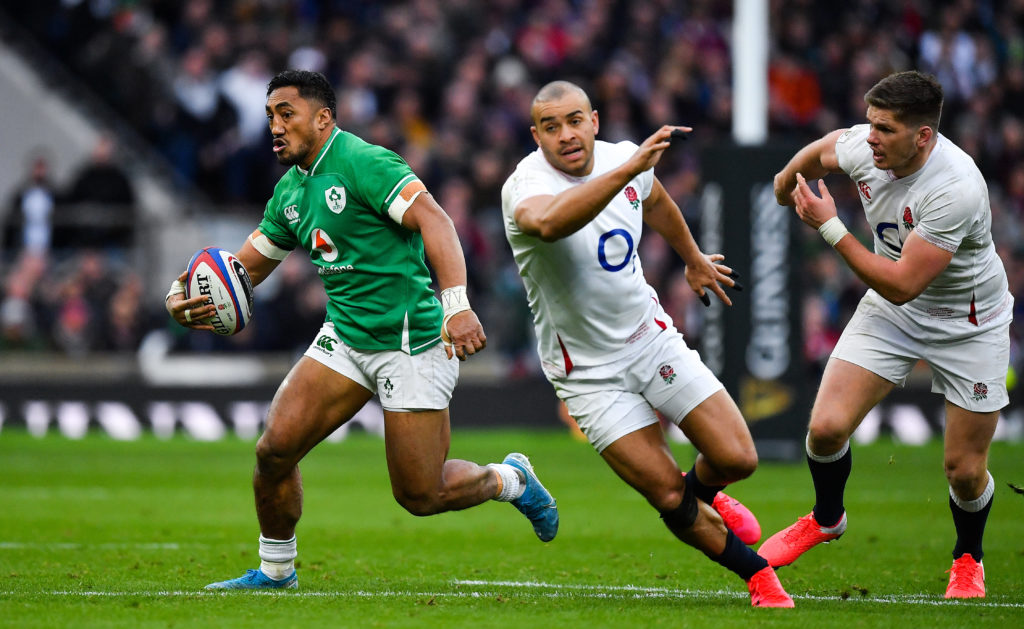
The IRFU could further strengthen this area of recruitment via a formal relationship with London Irish. The club was the first port of call for the first generation of professionals, as men like Mark McCall, Conor O’Shea and Bob Casey moved across the water, following a tradition that has existed ever since the Irish economy began its periodical nose dive into recession.
You go across the water for work.
In theory, making London Irish the ‘fifth province’ is a great idea. Strong links already exist with former Ireland coach Declan Kidney being the current director of rugby at Brentford. Discussions have taken place on several occasions down through the years.
“I was on the board of London Irish about 15 years ago and it was mooted at that time,” Keith Wood told otbsports.com. “There were regulation problems having a country owning a team in a different territory.”
The IRFU do not need to buy a stake in the club, just come to an agreement of player sharing that suits both parties. Having a fifth team in place if (or when) CVC amalgamates the Pro16 and the Premiership would put Irish rugby ahead of the curve.
Regardless of what the future holds, nobody has been able to present Nucifora with a better method to stop players from leaving. Weaponizing national selection is the most effective business model until somebody ruins it. And when that inevitably occurs Nucifora can always pay Peter by robbing Paul.
If you’ve enjoyed this article, please share it with friends or on social media. We rely solely on new subscribers to fund high-quality journalism and appreciate you sharing this so we can continue to grow, produce more quality content and support our writers.



Comments
Join free and tell us what you really think!
Sign up for free